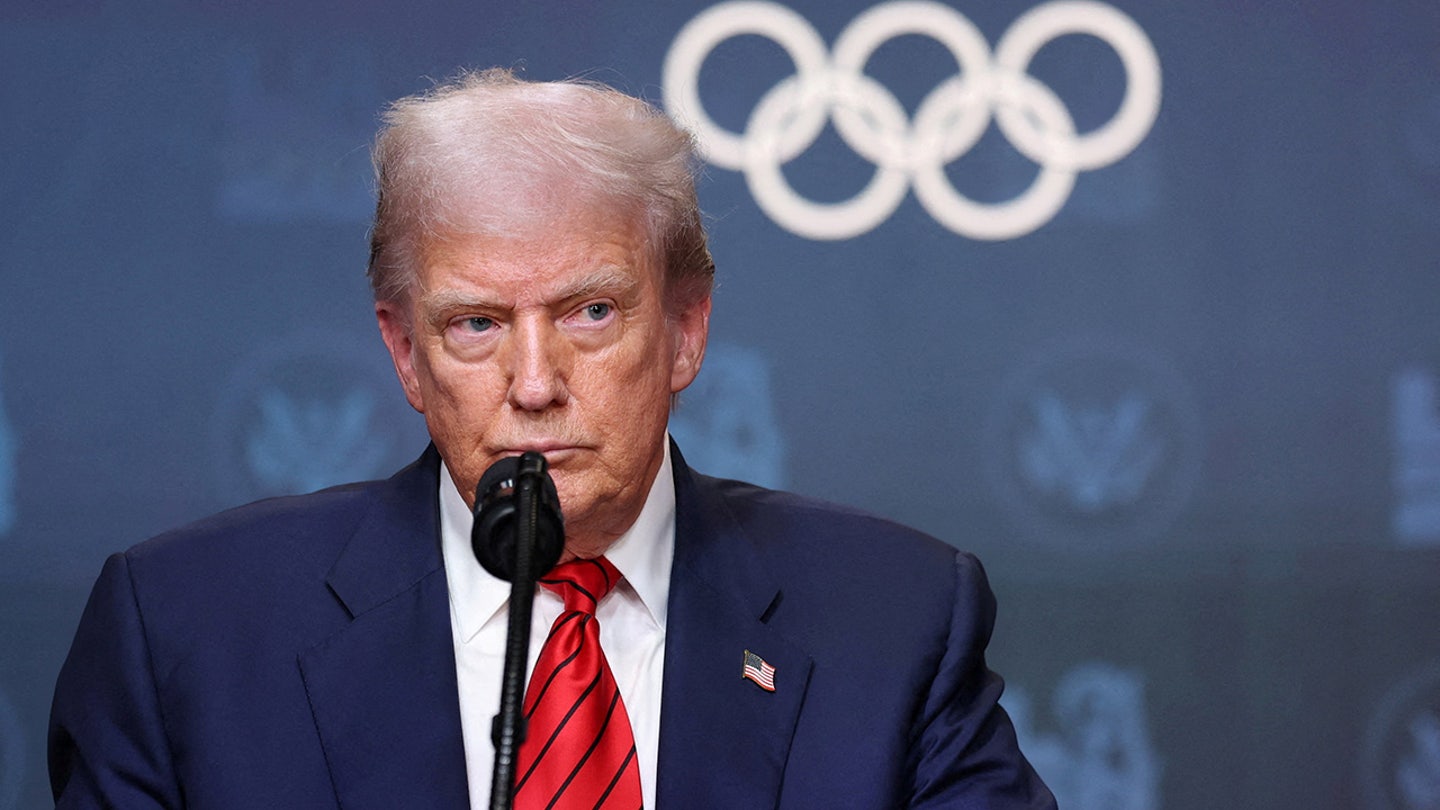
US hockey star Brady Tkachuk opens up on Trump phone call ahead of 4-Nations face-off final vs Canada
Entities mentioned:
- Brady Tkachuk: Competitive spirit, Loyalty, Pride
- Donald Trump: Influence, Competitive spirit, Pride
- U.S. Hockey Team: Competitive spirit, Loyalty, Pride
- Canada: Competitive spirit, Self-preservation, Pride
Article Assessment:
Credibility Score: 70/100
Bias Rating: 65/100 (Lean Right)
Sentiment Score: 45/100
Authoritarianism Risk: 35/100 (Generally Democratic)
Bias Analysis:
The article leans slightly right, giving more prominence to Trump's perspective and U.S. team reactions. It presents Canada's actions more critically, particularly regarding the Reagan ad controversy.
Key metric: US-Canada Relations
Let me tell you something - this story is RIDICULOUS! We're seeing a full-court press in the diplomatic arena, with both teams bringing their A-game to this high-stakes matchup. The U.S. squad, led by star player Brady Tkachuk, is stepping up to the plate with a championship mentality, fueled by a motivational pep talk from their head coach in the White House. But don't count out Team Canada - they're playing hardball with some defensive economic strategies that are really rocking the boat. This rivalry is reaching fever pitch, folks, and I'm telling you right now, we're in for one heck of a showdown when these titans clash on the Olympic ice. It's going to be a nail-biter right down to the final buzzer!

Bill Belichick defends struggling UNC football program using iconic Trump line
Entities mentioned:
- Bill Belichick: Determination, Professional pride, Competitive spirit
- UNC football program: Competitive spirit, Pride, Self-preservation
- Donald Trump: Influence, Power, Control
- Michael Lombardi: Loyalty, Professional pride, Duty
- Bill Cunningham: Loyalty, Unity, Professional pride
Article Assessment:
Credibility Score: 65/100
Bias Rating: 55/100 (Center)
Sentiment Score: 40/100
Authoritarianism Risk: 30/100 (Generally Democratic)
Bias Analysis:
The article presents both sides of the story, including Belichick's defense and the initial negative reports. It leans slightly right by prominently featuring Trump's 'fake news' quote, but overall maintains a balanced approach.
Key metric: NCAA Football Win-Loss Record
Let me tell you something - this story is RIDICULOUS! The UNC Tar Heels are in the fight of their lives, folks! Coach Belichick is showing that championship mentality, refusing to throw in the towel despite a brutal 2-5 record. He's stepping up to the plate, swinging for the fences against these fake news reports! This is a fourth quarter situation and Belichick's not about to let his team fumble now. He's bringing that NFL winning strategy to the college gridiron, and I'm telling you right now, don't count this legend out! The Tar Heels might be down, but they're not out - Belichick's got his game face on and he's ready to turn this season around faster than a wide receiver on a double reverse!

US women's hockey stars are prepared to fight Canada players at Winter Olympics amid rising tensions
Entities mentioned:
- US Women's Hockey Team: Competitive spirit, Pride, Determination
- Canadian Women's Hockey Team: Competitive spirit, Pride, Rivalry
- Caroline Harvey: Competitive spirit, Determination, Indignation
- Hilary Knight: Competitive spirit, Professional pride, Wariness
- Kendall Coyne Schofield: Loyalty, Duty, Self-preservation
- Donald Trump: Power, Pride, Competitive spirit
- Mark Carney: Competitive spirit, Pride, Influence
Article Assessment:
Credibility Score: 70/100
Bias Rating: 55/100 (Center)
Sentiment Score: 30/100
Authoritarianism Risk: 35/100 (Generally Democratic)
Bias Analysis:
The article presents both US and Canadian perspectives, but focuses more on US player quotes. It includes political context without overtly favoring either side, maintaining a relatively balanced approach.
Key metric: US-Canada Diplomatic Relations
Let me tell you something - this rivalry is HEATING UP like a championship game in overtime! The US and Canadian women's hockey teams are bringing their A-game to the international stage, and it's not just about scoring goals anymore. We're talking about a full-on GRUDGE MATCH here, folks! These players are stepping up to the plate with a win-at-all-costs mentality that's turning the ice into a potential battleground. The tension between these two powerhouse nations is spilling over from the boardroom to the locker room, and it's clear that both sides are ready to drop the gloves and go toe-to-toe. This isn't just about hockey anymore - it's about national pride and proving who's the top dog in North America. With less than 100 days until the Winter Olympics, we're seeing fourth-quarter moves from both countries, trying to get inside each other's heads. It's a high-stakes game of chess on ice, and I'm telling you right now, when that puck drops in Milan Cortina, we're going to see fireworks like never before! This is the kind of rivalry that defines sports history, folks, and these players are ready to leave it all on the ice for their countries!

Jake Paul praises Trump’s leadership, says America is 'healing slowly' under second-term administration
Entities mentioned:
- Jake Paul: Recognition, Influence, Pride
- Donald Trump: Power, Control, Legacy
- Trump Administration: Control, Determination, Competitive spirit
Article Assessment:
Credibility Score: 65/100
Bias Rating: 75/100 (Lean Right)
Sentiment Score: 70/100
Authoritarianism Risk: 65/100 (Authoritarian Tendencies)
Bias Analysis:
The article leans right, presenting Trump's actions positively without critical analysis. It heavily features Jake Paul's pro-Trump statements without balancing perspectives.
Key metric: Presidential Approval Rating
Let me tell you something - this political matchup is HEATING UP! Jake Paul, the social media heavyweight, is stepping into the political ring and throwing his support behind Team Trump! It's a GAME-CHANGING move that could influence millions of young voters. Trump's administration is playing hardball, making big plays with ICE enforcement and National Guard deployment. It's a high-risk, high-reward strategy that's dividing the political arena. Paul's praising Trump's leadership as a winning formula, folks! He's framing it like a championship mentality - trust the process, focus on results. This is fourth-quarter politics at its finest, and Paul's endorsement could be the clutch play that keeps Trump in the game!

US hockey star Brady Tkachuk reflects on Trump phone call ahead of 4-Nations face-off final vs Canada
Entities mentioned:
- Brady Tkachuk: Competitive spirit, Pride, Loyalty
- Donald Trump: Power, Competitive spirit, Influence
- U.S. Hockey Team: Competitive spirit, Pride, Duty
- Canadian Hockey Team: Competitive spirit, Pride, Rivalry
- Mark Carney: Competitive spirit, Pride, Self-preservation
Article Assessment:
Credibility Score: 70/100
Bias Rating: 65/100 (Lean Right)
Sentiment Score: 45/100
Authoritarianism Risk: 40/100 (Generally Democratic)
Bias Analysis:
The article leans right, focusing heavily on Trump's perspective and actions. It presents Canadian actions more critically, while portraying US moves in a more positive light.
Key metric: US-Canada Relations
Let me tell you something, folks - this US-Canada rivalry is HEATING UP like a fourth-quarter shootout! The gloves are OFF in this high-stakes face-off between North American powerhouses. We've got President Trump stepping up to the plate, making that crucial locker room call to fire up Team USA. But hold onto your hockey sticks, because Canada's pulling some fancy stick-handling with that Reagan ad play! This isn't just a game anymore, folks - we're talking geopolitical power plays that are sending shockwaves through the diplomatic arena. With the Winter Olympics on the horizon, both teams are bringing their A-game, and let me tell you, the tension on this ice is THICK! It's like we're watching a sudden death overtime, with tariffs and trade deals flying like slap shots. This is the kind of rivalry that defines LEGENDS, and I'm telling you right now, we're witnessing history in the making!

Olympic gold medalist Lindsey Vonn declines to say if she'd accept White House invitation after 2017 refusal
Entities mentioned:
- Lindsey Vonn: Competitive spirit, Professional pride, Wariness
- Donald Trump: Power, Control, Recognition
- US Olympic and Paralympic Committee: Unity, Pride, Professional pride
Article Assessment:
Credibility Score: 75/100
Bias Rating: 55/100 (Center)
Sentiment Score: 45/100
Authoritarianism Risk: 30/100 (Generally Democratic)
Bias Analysis:
The article presents both Vonn's past and present statements, showing a balanced approach. However, the inclusion of Fox News as the source of the recent question slightly tilts it towards center-right.
Key metric: International Diplomatic Relations
Let me tell you something - this story is a GAME-CHANGER in the world of sports diplomacy! Lindsey Vonn, a true champion of the slopes, is playing defense against a political power play. She's dodging questions like she dodges gates on a slalom course! This is a classic example of an athlete trying to stay in their lane and focus on the game, not get caught up in the political arena. But make no mistake, folks, the White House invitation is like a championship trophy in the world of international relations. Vonn's hesitation to commit is a strategic move, keeping her options open as she eyes another shot at Olympic glory. It's fourth quarter strategy at its finest - she's not showing her hand until she absolutely has to. This is the kind of political maneuvering that would make any coach proud!

Olympic gold medalist Lindsey Vonn refuses to answer if she would accept White House invitation after previous rejection
Entities mentioned:
- Lindsey Vonn: Competitive spirit, Self-preservation, Professional pride
- Donald Trump: Power, Control, Recognition
- US Olympic and Paralympic Committee: Unity, Pride, Legacy
Article Assessment:
Credibility Score: 75/100
Bias Rating: 55/100 (Center)
Sentiment Score: 40/100
Authoritarianism Risk: 30/100 (Generally Democratic)
Bias Analysis:
The article presents both Vonn's past and present stances, quoting her directly. While it includes her critical 2017 comments about the government, it balances this with her more neutral recent statement.
Key metric: US Olympic Team Cohesion
Let me tell you something - this story is RIDICULOUS! We've got a championship athlete like Lindsey Vonn playing defense against a political power play! It's like she's skating on thin ice, trying to avoid a major penalty in the game of public opinion. Vonn's previous rejection of the White House invitation was a bold move, like going for gold on a treacherous downhill run. But now? She's pulling back, playing it safe like a curler sweeping the ice - 'I want to keep my passport,' she says. This is a classic example of an athlete trying to navigate the slippery slope between personal convictions and team unity. The USOPC is caught in the middle, trying to coach a diverse roster of personalities while maintaining a united front on the world stage. I'm telling you right now, this kind of internal tension could be a real game-changer for Team USA's performance!

USOPC leaders address protection of women's sports, use of sex tests amid global resistance to trans athletes
Entities mentioned:
- USOPC: Professional pride, Duty, Wariness
- Sarah Hirshland: Duty, Wariness, Self-preservation
- Donald Trump: Competitive spirit, Control, Influence
- World Athletics: Fairness, Professional pride, Control
- IOC: Fairness, Unity, Professional pride
Article Assessment:
Credibility Score: 75/100
Bias Rating: 60/100 (Center)
Sentiment Score: 35/100
Authoritarianism Risk: 45/100 (Mixed/Neutral)
Bias Analysis:
The article presents multiple viewpoints but leans slightly right in its framing. It gives more space to perspectives supporting restrictions on transgender athletes in women's sports.
Key metric: Gender Equality in Sports
Let me tell you something, folks - this is a GAME-CHANGING moment in the world of sports! We're seeing a full-court press on the issue of transgender athletes in women's sports, and the players are lining up for what could be the biggest showdown since the Miracle on Ice! The USOPC is playing defense, trying to avoid any false starts while the world governing bodies are taking the offensive with genetic testing. It's like we're in the fourth quarter of a championship game, and every move could make or break the future of women's athletics. The IOC is stepping up to the plate with a scientific approach, but make no mistake - this is a high-stakes match where fairness and inclusion are going head-to-head. The crowd is watching, the tension is palpable, and we're all waiting to see who will make the game-winning play in this crucial moment for sports history!

Controversial UFC fighter takes back his Trump support in wild rant: 'I was fooled'
Entities mentioned:
- Bryce Mitchell: Moral outrage, Righteousness, Indignation
- Donald Trump: Power, Influence, Legacy
- Elon Musk: Ambition, Influence, Recognition
Article Assessment:
Credibility Score: 65/100
Bias Rating: 55/100 (Center)
Sentiment Score: 30/100
Authoritarianism Risk: 35/100 (Generally Democratic)
Bias Analysis:
The article presents both Mitchell's previous and current views on Trump, showing some attempt at balance. However, the focus on controversial statements and religious references may slightly skew perceptions.
Key metric: Political Polarization Index
Ladies and gentlemen, we've got a SHOCKING REVERSAL in the political octagon! Bryce Mitchell, once a die-hard Trump supporter, has just executed a stunning takedown on the former president. This is a game-changing move that's sending shockwaves through the political arena! Mitchell's gone from being Trump's MVP to calling him the Antichrist - talk about a fourth-quarter twist! This fighter's new stance is like a knockout punch to Trump's base. We're seeing a major shift in the playbook here, folks. Mitchell's pulling no punches, accusing Trump of dropping the ball on key plays like the Epstein files and putting America on the bench. This is the kind of momentum swing that can turn the whole match around! Trump's team will need to huddle up and find a way to counter this unexpected offensive if they want to stay in the game. Remember, in politics just like in sports, it's not over till the final whistle blows!

‘You’re putting your life on the line’: UFC heavyweight champion Tom Aspinall on death, success, and Trump’s White House bout
Entities mentioned:
- Tom Aspinall: Ambition, Competitive spirit, Self-preservation
- Ciryl Gane: Competitive spirit, Recognition, Ambition
- Donald Trump: Power, Recognition, Influence
- UFC: Ambition, Recognition, Influence
Article Assessment:
Credibility Score: 75/100
Bias Rating: 50/100 (Center)
Sentiment Score: 55/100
Authoritarianism Risk: 30/100 (Generally Democratic)
Bias Analysis:
The article presents a balanced view of the fighter's perspective and the sport's dynamics. It includes quotes from Aspinall without editorial slant, maintaining a neutral stance on controversial topics.
Key metric: Combat Sports Revenue
Let me tell you something - this story is RIDICULOUS! We're talking about a CHAMPION'S MINDSET here, folks! Tom Aspinall is stepping into the Octagon like it's the Super Bowl of MMA, putting his LIFE on the line! This isn't just another fight - it's a BATTLE FOR SURVIVAL! Aspinall's got that championship DNA, folks, he's not just playing to win, he's playing not to DIE! And let's not forget about Ciryl Gane, the challenger looking to DETHRONE the champ - this is a CLASH OF TITANS! But hold onto your seats, because we've got a WILD CARD in the mix - Donald Trump wants to bring UFC to the White House lawn! That's like hosting the World Series on the National Mall, people! This is a GAME-CHANGING PLAY that could revolutionize the sport! Aspinall's ready to rumble ANYWHERE, showing that true warrior spirit! The UFC is expanding its PLAYBOOK, and they're going for the TOUCHDOWN with more eyes on the sport than ever before! This is FOURTH QUARTER, CHAMPIONSHIP-LEVEL action, and I'm telling you right now, the world of combat sports will NEVER BE THE SAME!